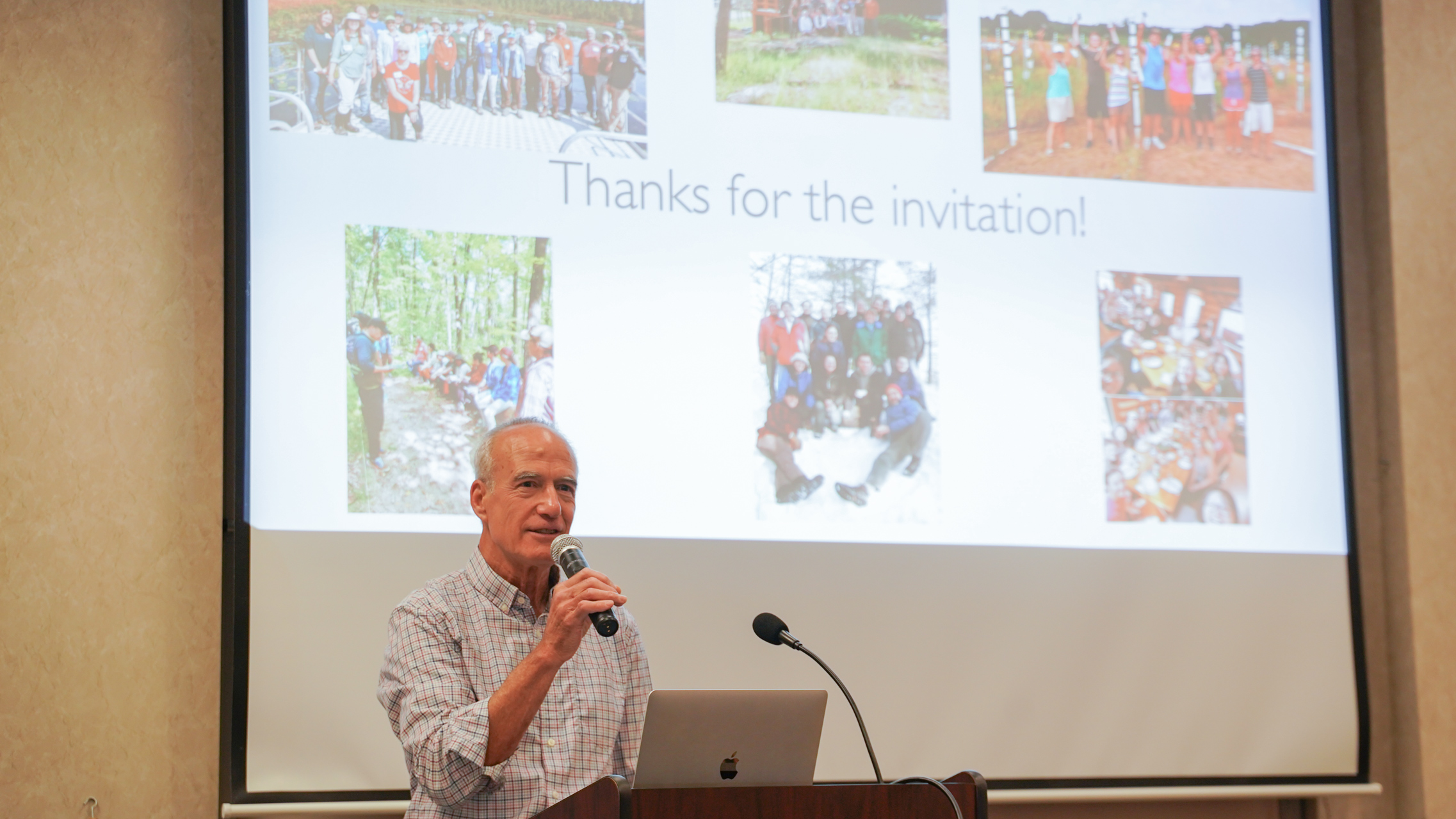Renowned ecologist and environmental scientist Peter Reich inspires the U of A community
Xinli Chen and Emily Holden - 2 October 2023

The University of Alberta welcomed renowned ecologist and environmental scientist, professor Peter Reich, as a distinguished visitor from September 14 to 24 at the invitation of professor Scott Chang. Professor Reich's presence greatly enriched the academic environment at the U of A, fostering collaboration and knowledge exchange through his networking with our community and in various events, seminars and research collaborations.
Biological Sciences Departmental seminar
One of the standout moments during professor Reich's visit was his captivating seminar, "Causes and Consequences of Taxonomic and Functional Diversity in an Era of Multiple Global Changes," held on September 15 in the Biological Sciences Centre. The seminar drew a substantial audience of approximately 100 individuals, including both students and faculty with a keen interest in ecology and environmental science. Professor Reich expertly delved into the intricate dynamics between climate change and plant diversity, shedding light on how their interplay ultimately impacts ecosystem function.
College of Natural and Applied Sciences seminar
Professor Reich spoke to the College of Natural and Applied Sciences in a lecture on September 18 at the Lister Centre. His presentation, "Climate Change Impacts on Plants and Soils: Implications for Ecosystems and Climate Feedbacks," provided profound insights into the complex relationship among climate change, plants and soils. Drawing on his own research as well as that of others, Reich presented a framework to unpack climate change impact on plants, microbes and their interactions, and how these impacts will change over time. He gave Canadian and global examples of how climate change has affected the carbon storing abilities of natural systems, and discussed whether we can expect terrestrial systems to continue to grow their carbon storage capacities.
Public seminar
On September 22, professor Reich gave a public lecture titled "The Promise and Pitfalls of Relying on Nature as Part of Our Climate Change Solution." The seminar opened with Dean Stan Blade introducing professor Reich, with a humorous observation on Reich’s biography: “[Reich] has, however, failed so far to slow or stop either climate change or biodiversity loss, so his work has just begun.”
In the presentation, Reich spoke of how members of the public, scientists, policy makers and businesses hope to harness the earth’s carbon storage capabilities in nature-based climate change solutions. He provided a comprehensive overview of nature-based solutions while addressing the challenges associated with their implementation. He underscored a crucial conclusion that the point is not that storing more carbon on land will stop climate change, but that it can help in a meaningful way while also providing benefits to nature (biodiversity) and people (clean air, economic well-being). Audience members agreed that we should stop arguing about whether it has potential!
Watch a recording of this event on ALES’s YouTube account.
Research collaborations and interactions with researchers
Professor Reich was also introduced to the related research underway at the U of A. He spent valuable time early in the week visiting laboratories in ALES and Science, including those of Scott Chang, James C. Cahill, Mark Boyce, Viktoria Wagner, Fangliang He, Andreas Hamann, Jen Beverly, Charles Nock, Carol Frost and Brad Pinno. He also joined grad students at a forest trial in Judy Creek, Alberta.
Peter told us he enjoyed these engaging experiences, which not only enriched his own research but also provided guidance and insights to graduate students and postdoctoral researchers. These interactions have laid a foundation for potential collaborations in the future, fostering a sense of camaraderie and a shared commitment to advancing the frontiers of scientific knowledge.
This initiative was made possible by the University of Alberta Distinguished Visitors Fund.